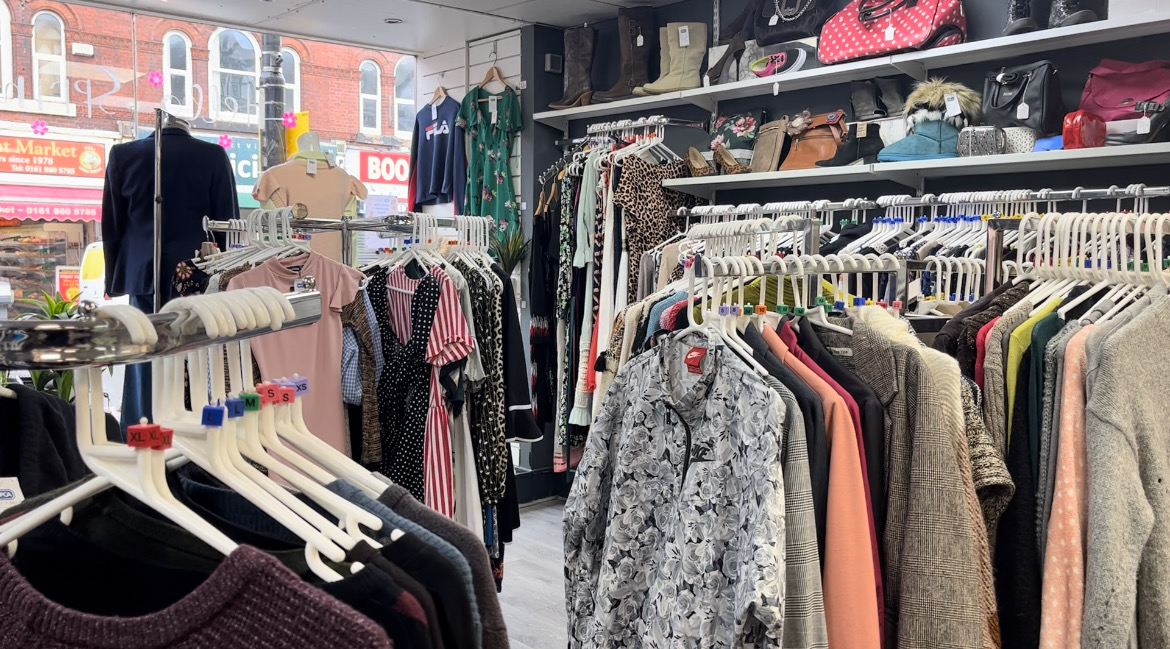
Every five minutes 10,000 items of clothing are sent to landfill, what can we do in Manchester to reduce this?
Fast fashion is one of the world’s biggest polluters as plastic fibres pollute the oceans, toxic dyes are used, and workers are exploited and underpaid.
According to the United Nations 8-10% of the world’s global emissions are from fast fashion.
One of the ways you can help decrease the impact of fast fashion is to shop second-hand on websites such as vinted or in charity shops.
The RSPCA has five charity shops around Manchester which have since an influx of customers wanting to shop sustainably.

Photo by Erin Parker
Manager of Chorlton RSPCA shop, Tiffany Fisherly, said: “Everyone is starting to think a lot more about their carbon footprint, more so than ever in the last year with the cost-of-living crisis.
“People are starting to think they don’t have the money for fast fashion. Fast fashion prices are going up, it used to be really cheap, but you go to Primark now and you see it’s £50-£70 for a coat sometimes, which is extortionate to some people, and then at a charity shop you can get a coat for £10.”
The Charity Retail Association’s data showed a 9.1% increase in the average number of transactions per day in charity shops between October and November 2022 compared to 2021.
“There are so many youngsters now thrifting and getting their own load of stuff and opening their own shops, and TikTok’s going viral of people doing their hauls, it’s definitely become a lot more popular through social media.”
Louis Taylor, the deputy manager of the Chorlton RSPCA store, spoke about how people’s perspectives of charity shops have changed. He said: “The whole mindset of a charity shop has changed, people thought it was dirty, not a cool place to shop. You can get really cool stuff in there at a good price that you don’t see on the high street.”
Charity shops are able to reuse or recycle more than 90% of donated clothing according to the Charity Shop Retail Association. By reusing or recycling this clothing charity shops are helping to reduce landfill.
Louis continued: “People like to have their own unique style, they like to be more individual instead of following the mass-produced trends that are being thrown around everywhere, people like to be a bit more unique. There are so many one-off pieces you can find in charity shops now a days.”
The money raised at the RSPCA charity shops stay local and helps the animal hospital in Salford and the adoption centers around Manchester and Salford.
The RSPCA make sure their stores are run sustainably as well to reduce their impact on the environment, they use an electric van and only do drop offs between stores once a week to try and limit their carbon footprint.
They also don’t buy new goods from brands; they use refillable cleaning products, and they use LED lighting.
The RSPCA give stock three weeks to sell, if it hasn’t sold it gets transferred to a different store giving it plenty of chance at getting bought.

A very interesting piece , so true and pleased you have brought this article to the publics notice.Well done.